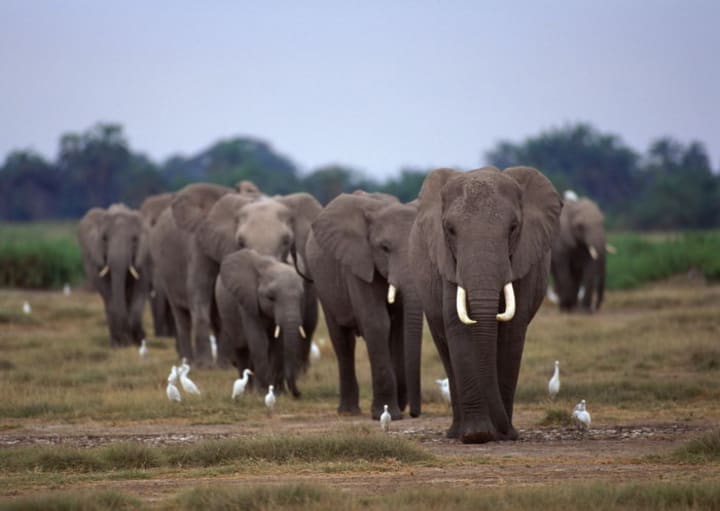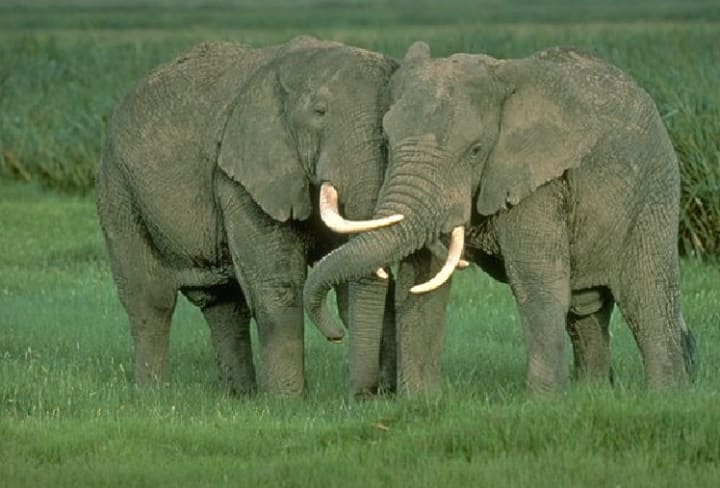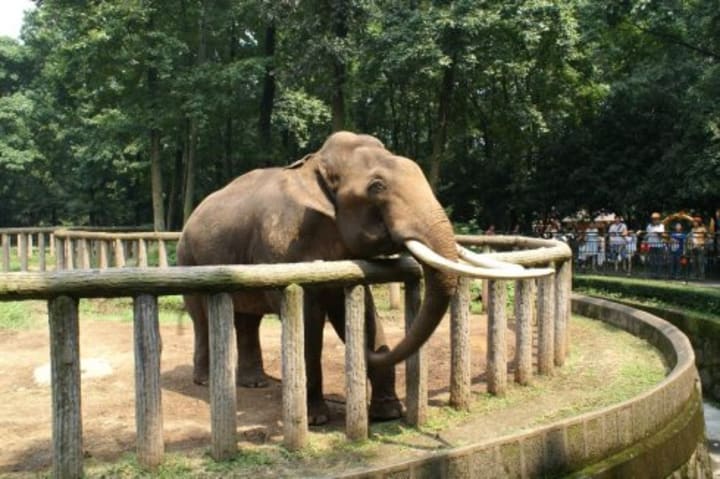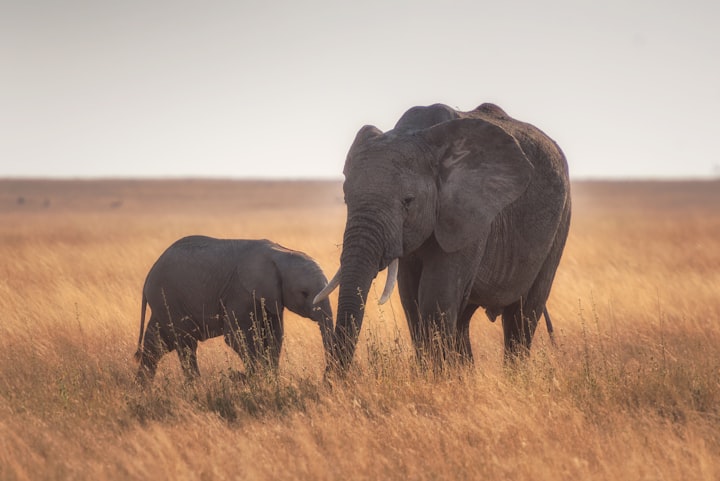Do you know the characteristics and habits of elephants, as well as their life span?
Follow me and I'll tell you
The elephant is currently the world's largest mammal on land and belongs to the order Proboscis, there are only one family and two genera of three, namely, Elephantine, African elephant genus, and Asian elephant genus, there are two kinds of African elephant: common African elephant (also called Savannah elephant or bush elephant) and African forest elephant, Asian elephant only one kind (also called Indian elephant). Widely distributed in Africa south of the Sahara Desert and South and Southeast Asia to the southern border of China's tropical and subtropical areas.
The characteristics and habits of elephants

The gestation period of elephants is 10-12 months, and the newborn baby elephant weighs 100 kg and needs to be 8-14 years old to reach sexual maturity. The largest elephant hunted in Angola in 1974 reportedly weighed 13.5 tons.
The elephant has thick skin and little hair, the trunk, and upper lip are fused into a cylindrical proboscis, the two maxillary incisors are large and long, the so-called "ivory", the mouth generally has three premolar teeth and three posterior molar teeth on each side, eating high fiber food, leaves, grasses, etc., the molar teeth do not grow at the same time, the existing molar teeth wear out, the new molar teeth grow out, so if If the last (sixth) tusk wears out after about 60 years of age, the old elephant may die of malnutrition, but if it continues to be fed ground food, it may continue to live.
Is it true that elephants love to eat rocks and dirt? Of course, it is true. To prevent the occurrence of malnutrition. Elephants regularly swallow rocks or dirt rich in mineral salts to replenish salt and nutrients. They also love bathing, and there are various types of baths: clear water baths, mud baths, dust baths, etc.
Elephants live in a variety of habitats, especially in jungles, grasslands, and river valleys. They live in groups, and males occasionally live alone. Feeding on plants, the diet is very large, more than 225 kg per day. Life expectancy is about 80 years. Some elephants have been domesticated by humans and are considered domestic animals for riding or service. Elephant tusks have been used as valuable carving materials and are expensive, so elephants have been hunted indiscriminately and their numbers have declined sharply.
Elephants are prone to skin diseases because of the small amount of hair, so they need to bathe or take mud baths often. The skin of elephants is thick and wrinkled, and some wrinkles are more than ten centimeters deep, and the skin is light gray.
Elephants have large ears with abundant blood vessels for heat dissipation and a tail that is not long and has a brush at the top.
Elephants are herbivores, 16 hours a day to collect food, their digestive system is not very efficient, only 40% of the food can be absorbed, an adult elephant can eat 30 to 60 kg of food a day, but 60% is excreted.
Elephants normal times to walk 3 to 6 km per day to forage, but quickly run up to 36 km per hour speed
How long is the lifespan of an elephant?
The life span of wild elephants is very long, generally up to 60-70 years or even more, and in captivity up to 80 years or more, and its maximum life span is up to 120 years. The average life span of Asian and African elephants is 60-70 years.

Elephants are herd animals, family as a unit, with the female elephant as the leader, the daily activities of the time, action routes, feeding places, habitat, etc. are listening to the female elephant's command. And adult male elephants only assume the responsibility of protecting the safety of the family. Sometimes several elephant herds gather and form large groups of hundreds. In mammals, the most long-lived animal is the elephant, it is said to live sixty to seventy years. The long-lived elephants of the Galapagos Islands are recorded to live from one hundred and eighty to two hundred years.
However, the wild environment and zoo elephants have different life expectancies, several studies have confirmed that the life expectancy of animals in zoos is generally shorter than the life expectancy of similar animals living in the wild. Elephants in European zoos are 17 years shorter than elephants living in the wild. Another study from British royalty showed that female elephants in African zoos can only survive for less than 17 years, while the average life expectancy of female elephants in Kenyan safari parks is 56 years.

Zoos are not conducive to elephant life, and the life span of elephants living in zoos has been shortened by decades. With the spread of diseases such as herpes and tuberculosis in zoos and the monotony of the zoo environment, it is difficult for elephant herds to sustain themselves without stimulation from external factors. By keeping elephants in enclosures with no other elephant companions, no trees or other plants, and only a few plastic toys, elephants can find life boring, which causes worry and disease. Animals in the wild have to wander long distances every day, such as 48 kilometers per day for elephants in the wild, and this requirement simply cannot be met in a zoo. Many zoos around the world have canceled large animal exhibits in response to calls from animal protection organizations.
Among land mammals, the elephant's pregnancy period is relatively long, a year and a half to two years to give birth to a baby elephant. Baby elephants are born 1 meter tall and weigh 100 kilograms. In nature, the reproductive rate of elephants is relatively low, about 5 to 6 years apart to give birth to a child.
According to the information, elephants also have their own grave it. When an old elephant is dying, some strong elephants will help it to the elephant quit (elephant ancestral death place, the same place). When the old elephant comes to the mound, it falls silently and waits for death. At that time, its descendants will use huge, sharp, and powerful tusks to dig a big tomb slope and bury the old elephant's carcass, before spilling tears and leaving.
About the Creator
Flagler Danzig
The talent is 1% inspiration adds on 99% sweat, certainly, does not have that 1% inspiration, in the world all sweat to put or bring together also only is the sweat!







Comments
There are no comments for this story
Be the first to respond and start the conversation.